If you want to prepare for a long-term power outage, the first step is to assemble an emergency kit with ample water, non-perishable food, first aid supplies, extra clothing, blankets, etc. You will also need a portable power source to charge essential emergency appliances such as phones, TVs, lights, and radios.
Jackery Solar Generator acts as a reliable battery backup for homes that can charge most of the appliances such as refrigerators, phones, lights, etc. They can help you power appliances during a brief brownout, blackout, or a long-term power outage. This guide will focus on how to prepare for long-term power outage, what to do when the power goes out, and the best solar generators.
AI Takeaways
- When the power goes out unexpectedly, keep the freezers and refrigerators closed and check if there are any open heating and cooling locations near you.
- Protect yourself from a prolonged power outage by reaching out to the community for assistance, storing non-perishable food, and utilizing a solar battery backup to power essential household appliances.
- The best battery backups for the home from Jackery can power essential household appliances, such as refrigerators, coffee makers, microwaves, and fans.
- What to do after a power outage to keep yourself and your loved ones protected.
What To Do When The Power Goes Out
When the power goes out, you should stay calm and use flashlights to light up the space. You should also consider alternative heating or cooling methods depending on the weather conditions. Here are some power outage tips and tricks by Ready.gov that will help you understand how to prepare for a blackout:
-
Keep the freezers and refrigerators closed to prevent cooling loss.
-
Check with the local officials to see if there are any heating and cooling locations open near you.
-
Invest in a reliable power source to keep medical devices running during an outage.
-
Disconnect appliances to avoid any damage from electrical surges.
How To Protect Yourself During A Long-Term Power Outage?
When the power in your area goes out, chances are it will be back within a few minutes or hours. But be prepared to deal with a no-notice power cut for several days. Below are a few ways to prepare yourself and your family for such blackout situations.
Reach Out To Communities
Communities for power outages is a platform where people can find help during blackouts. These communities have power charging stations, generators, batteries, solar panels, and warming/cooling centers.
If your home is too hot or cool, evacuate the space and reach the nearest community for help. Develop a plan and carry all the essential items to get your family members and pet (if you have one) to a safe location. However, do not drive to communities if the road is no longer visible due to a blackout.
Note Down Important Information
Living without your cell phone is impossible. But in case of a power outage, finding a charging station and recharging all your electronic devices can be challenging.
It is recommended to note down all the vital information on paper to avoid this scenario. You can write down addresses and phone numbers of nearby storm shelters, local libraries, hospitals, schools that might help, and a few relatives whom to reach for assistance.
Once you have noted the information, it is time to switch off your device and save battery until you find a charging station.
Medical Needs
Illness can strike anytime and probably when you are least equipped. Have a first aid kit with bandages, disinfectants, and everything in between for emergencies.
Stock up on over-the-counter medications, including fever management, painkillers, and anti-allergy. In addition, if you rely on any medical devices that work on electricity, it is essential to know how to prepare for a long-term power outage.
While preparing for the power outage, the goal is to give your family the ability to survive for a few days without power. A big part of developing the plan is to have a reliable power backup source that can charge your medical devices during an emergency.
An essential home backup solution will help you keep your life-critical medicines safe in your refrigerator. If you do not have access to a power backup source, check the medication guidelines and understand how long they can be stored at higher temperatures.

For Keith Jepsen, outages used to mean scrambling in the dark and hoping the storm passed quickly, but that changed the day a two-day blackout exposed just how fragile his home setup really was. Watching neighbors drag out extension cords while his own fridge faded to silence was the moment it clicked that he needed something reliable. Bringing a Jackery HomePower 3000 into the house gave him exactly that. Now, when the grid cuts out, his lights stay on, the fridge stays cold, and his mornings look the same with the coffee maker humming, trailer ready for the next trip, and no frantic rush to find backup power. Read the full Jackery Story here to learn more.
Store Non-Perishable Food
Without power, your refrigerator will become off-limits in 4 hours. After this, you'll have to look for other ways to keep your food fresh.
If you have perishable food, cook it first and eat it fresh. Check the temperature of the food before consuming it. If the temperature is above 40°F, throw out all the food.
As you ponder how to prepare for a long-term power outage in winter, reserving non-perishable food items at home is one of the essential steps.
Some non-perishable foods that work well without refrigeration are dried fruits, canned soups, powdered milk, pasta, and cereals. Having enough dry food stock will ensure you no longer have to worry during the next power outage.
Use Your Generator Safely
Generators come in handy when you have to deal with extended power cuts. However, it is essential to understand and follow some precautionary measures to prevent hazards.
If you have an oil/gas generator, it's crucial to use it safely. Gas-powered appliances can be dangerous to use indoors. They emit carbon monoxide, causing CO poisoning in enclosed spaces.
Place the gas generator outside or at least 20 feet away from your house, windows, and garage door. As carbon monoxide gas is colorless and odorless, installing a CO detector is the right solution to safeguard your family.
The potential power disruption and the fear of carbon monoxide emission can quickly add stress to your life. So, how to prepare for a long-term power outage? What is the best and safe alternative to a gas generator? The answer to all your questions is solar generators.
Unlike gas generators, Jackery Solar Generators do not cause pollution or emit carbon monoxide. It is a quiet, safe, and easy-to-use solar generator involving no fuel or maintenance costs.
Solar generators collect solar energy from direct sunlight and store the power in a lithium battery. This stored energy is used to power your devices and appliances during power outages.
You can use Jackery Portable Power Station to keep your electronic devices, like smartphones, refrigerators, CPAP, laptops, coffee makers, etc., charged.

Unplug Your Home Appliances
During power outages, you may experience a sudden spike or surge in the power line. The fluctuations in the electricity line can often be a reason for potential electrical damage.
Unplug all the electrical devices, including the heating/cooling appliances, refrigerator, microwave, television, etc. You can shut off the power from the electrical circuit to prevent damage from a sudden power surge.
Check On Your Neighbors
Once you and your family members are safe and secure, your next step is to check the safety of your neighbors.
Communicate with nearby people and let them know you are safe. If you have older adults near your home, call them and see if they are safe in their homes. Reach out to them if they need assistance.
Cook Food Safely
If you use electronic stoves, you should stock up on alternatives such as gas stoves, solar ovens, gas grills, fireplaces, wood stoves, etc. However, if the fire is not an option, you can prepare your meals using a propane stove or solar-powered oven.
Cook the perishable food first and eat it within 2 hours of cooking. Always check the texture, smell, and look of your food before you consume it. And if you are in doubt, throw it out, as food poisoning can risk your family's health.
Home Battery Backup for Prolong Power Outages
When choosing the best battery backup for power outages, you need to calculate how many kWh does a house use. Once you know your electricity consumption, Jackery offers a wide range of solar generators and portable power stations that can charge electronics for hours. Jackery Solar Generators are reliable charging solutions that can charge most household appliances for hours, such as refrigerators, heaters, lights, TVs, etc. Here are the best battery backups for long-term power outage survival:
Jackery Solar Generator 2000 Plus
The Jackery Solar Generator 2000 Plus has a large battery capacity that can power household appliances for hours during the event of long-term power outages. Whether you want to power a refrigerator to keep the food fresh or heaters/ACs to keep the space comfortable during outages, the solar generator has your back. It supports multiple battery add-ons that allow you to expand the battery capacity from 2kWh to 24kWh.
Appliances Running Time
- Refrigerator (300W) = 5.3H
- Space Heater (1500W) = 1.1H
- TV (150W) = 10.0H
- Microwave (1600W) = 1.0H
- Water Heater (1500W) = 1.1H
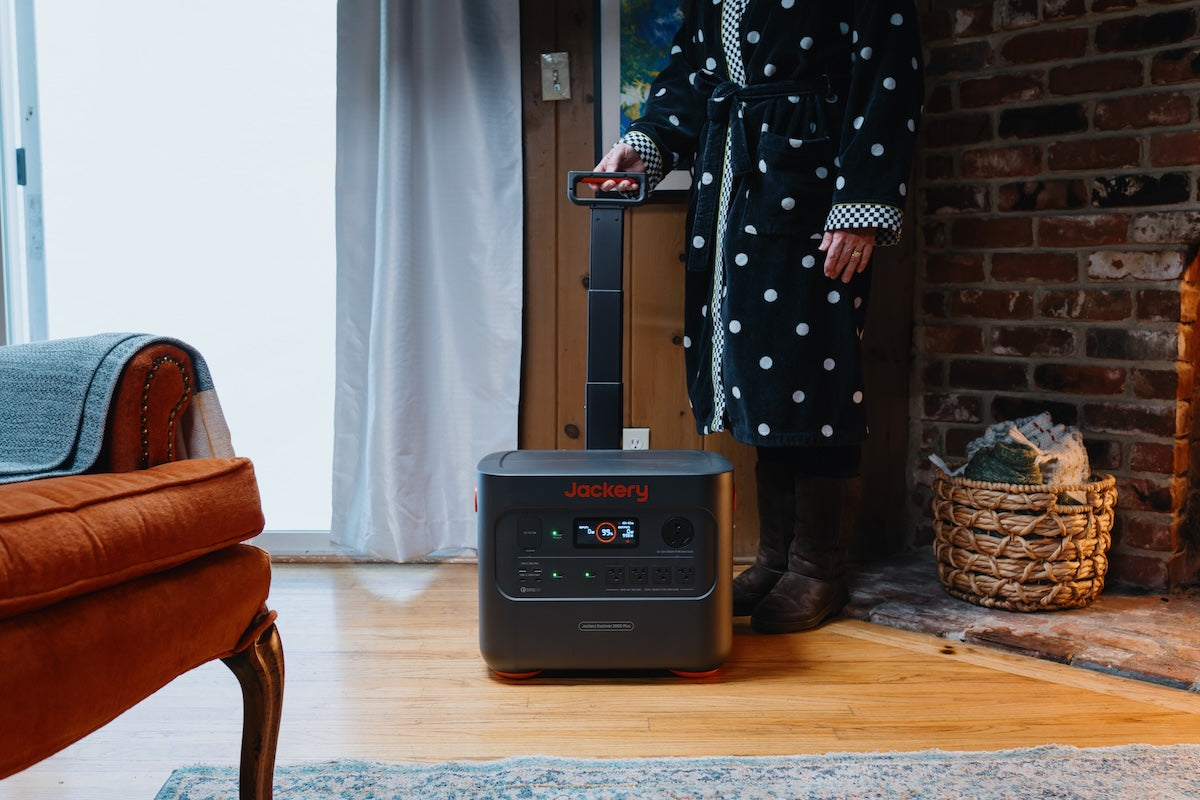
Who Should Buy This
If you want an essential home backup solution that can be expanded based on your power needs, then the Jackery Solar Generator 2000 Plus would be a reliable option, as it can power most household appliances.
Customer Review
“Plan is to use it at my home for emergency situations if/when power goes out - which is thankfully not typically very often. It performed well running our kitchen refrigerator, home Wi-Fi, lamp and fan plus separately an air fryer and coffee maker. The air fryer was the biggest hog reducing battery life, followed by the coffee maker I forgot to turn off.” — Frederick R.
Jackery Solar Generator HomePower 3000
The Jackery Solar Generator HomePower 3000 is the smallest and lightest 3kWh LFP product that can be transported anywhere around the home and power emergency household appliances. You can keep the refrigerator running for hours to prevent food from spoiling and the lights on to illuminate the space. It also features dual-sided handles, ensuring easy carrying around the home.
Appliances Running Time
- Refrigerator (300W) = 8.1H
- Space Heater (1500W) = 1.7H
- TV (150W) = 15.2H
- Microwave (1600W) = 1.6H
- Water Heater (1500W) = 1.7H

Who Should Buy This
If you're looking for an advanced essential home backup solution that can power most household appliances during unexpected outages, the Jackery Solar Generator HomePower 3000 with its massive battery capacity sounds like an ideal choice.
Customer Review
“I finally feel secure knowing that when the blackouts occur, I can simply push a button and keep my fridge and freezer running. Blackouts are occurring more frequently, and I am prepared. Thank you.” — Victoria Woodward.
Jackery Solar Generator HomePower 3600 Plus
The Jackery Solar Generator HomePower 3600 Plus is ideal for situations where power is out for far longer than a few hours. It can run the appliances you rely on most, like your fridge, lights, phones, medical devices, small heaters, and even some larger essentials. With the expandable capacity up to 21kWh, you can run your fridge for up to 14 days. It also has a pull rod and double wheels for easier transportation from one room to another.
Appliances Running Time
- Refrigerator (300W) = 9.5H
- Space Heater (1500W) = 2.0H
- TV (150W) = 17.7H
- Microwave (1600W) = 1.9H
- Water Heater (1500W) = 2.0H

Who Should Buy This
The Jackery Solar Generator HomePower 3600 Plus is ideal for households that want reliable, long-lasting backup power to stay comfortable, safe, and connected during extended blackouts.
Customer Review
“Super solid build quality. Like that the unit has wheels and a long handle bar to move around easily. Unit charged up quickly when plugged in. The mobile app also comes in handy to see the status of the backup battery. Would recommend.” — Curtis Sasaki.
Jackery Solar Generator 5000 Plus
The Jackery Solar Generator 5000 Plus is one of the most trusted essential home backup solutions that can power most household appliances for long hours or days. The expandability nature ensures you can extend the battery from 5kWh to 60kWh with the help of Jackery Battery Pack 5000 Plus. The dual voltage support ensures you can charge appliances working on 120V as well as 240V.
Appliances Running Time
- Refrigerator (300W) = 12.2H
- Space Heater (1500W) = 2.8H
- TV (150W) = 21.4H
- Microwave (1600W) = 2.6H
- Water Heater (1500W) = 2.8H

Who Should Buy This
If you want an essential home battery backup solution that can automatically kick in when an unexpected outage occurs to start powering critical household circuits, then the Jackery Solar Generator 5000 Plus, compatible with a Smart Transfer Switch, is a reliable option.
Customer Review
“The Jackery Explorer 5000 Plus boasts an impressive energy capacity of 5180Wh, which allows for a wide array of needs. It is equipped with multiple output options, including AC, DC, and USB ports, ensuring compatibility with various gadgets and appliances. This versatility is particularly advantageous for users who require power for camping equipment, medical devices, electric vehicles, or during emergencies.” — Customer.
What to do After a Power Outage
Now that you understand tips on how to prepare for a long-term power outage in winter or summer, it's time to learn what to do next. Once the power is restored, it is time to do some after-power outage tasks. The two most crucial things you need to keep in mind after a blackout include
Throw Spoiled Food
Check out the food you have stored in the refrigerator before the power outage. If the texture or smell of the food is altered, consider throwing it. The government recommends throwing all food exposed to 40°F (4.44°C) or higher temperatures for more than two hours. Similar to food, throw away the medicines that require refrigeration.
Prepare Power Backup Plan
Blackouts can happen again. To avoid the situation, consider purchasing a portable power station and be prepared for the next power outage.
The Jackery Portable Power Station can be recharged via solar panels, car charging, and wall charging. With the best battery quality and high efficiency, Jackery solar generator is known to be one of the best generators for long-term power outages.
Solar generators operate efficiently and do not consume fossil fuels. That's why they are a safe, efficient, and clean way to charge your devices during blackouts.
Power outages can be scary. But with planning, you can deal with blackouts.
Conclusion
Investing your money in a solar power generator can help you in many ways, especially when dealing with power outages. It is your answer to "how to prepare for a long-term power outage," as it ensures you are not powerless during power cuts.
If you are looking for an emergency power backup plan, the Jackery Solar Generator 2000 Plus, and Jackery Solar Generator 5000 Plus are excellent choices for a long-term power outage as they are equipped with a higher-capacity battery. You can charge anything from refrigerators and heating/cooling devices to electric grills with them.
Do you want to get access to the latest tips and news on social power generation? Sign up for the Jackery newsletter today!

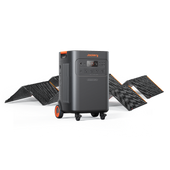












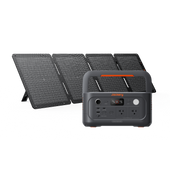



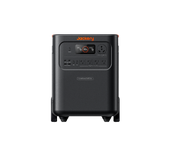
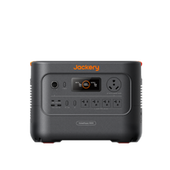






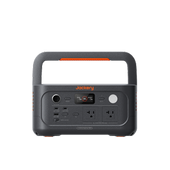





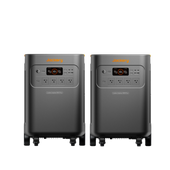
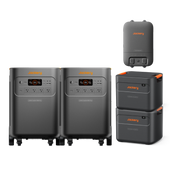





![[Add - on] Jackery Manual Transfer Switch for Explorer 5000 Plus - Jackery](http://www.jackery.com/cdn/shop/files/add-on-jackery-manual-transfer-switch-for-explorer-5000-plus-9017324.png?v=1754016782&width=170)

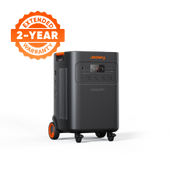

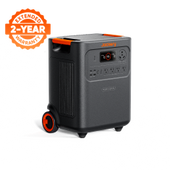






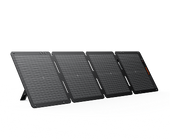





















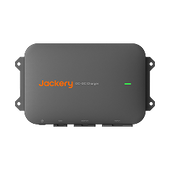




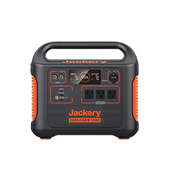






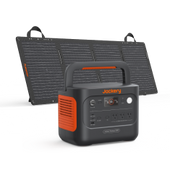
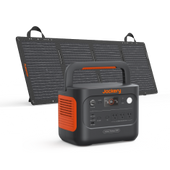






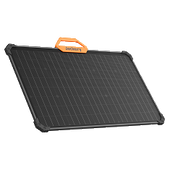



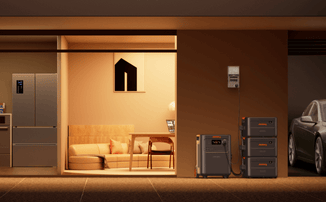












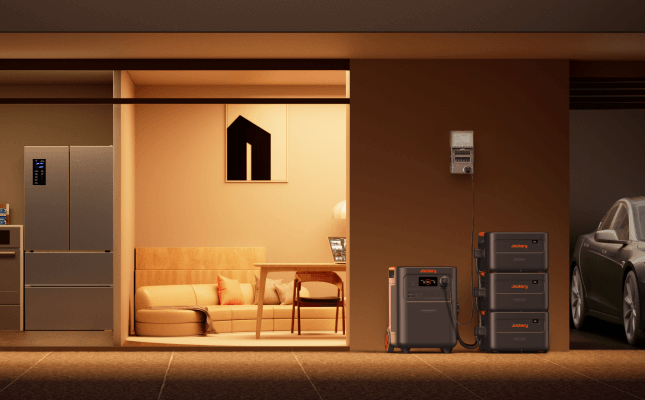




















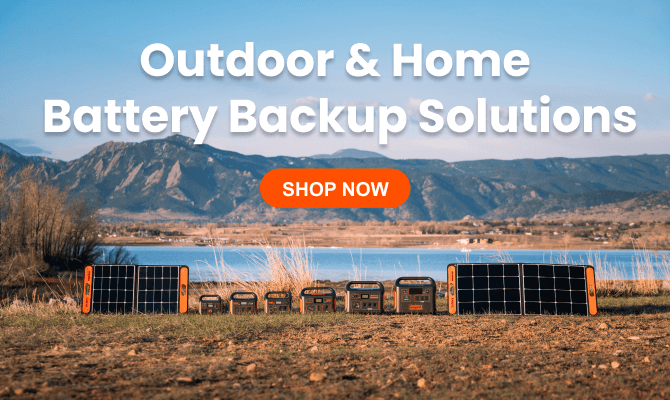


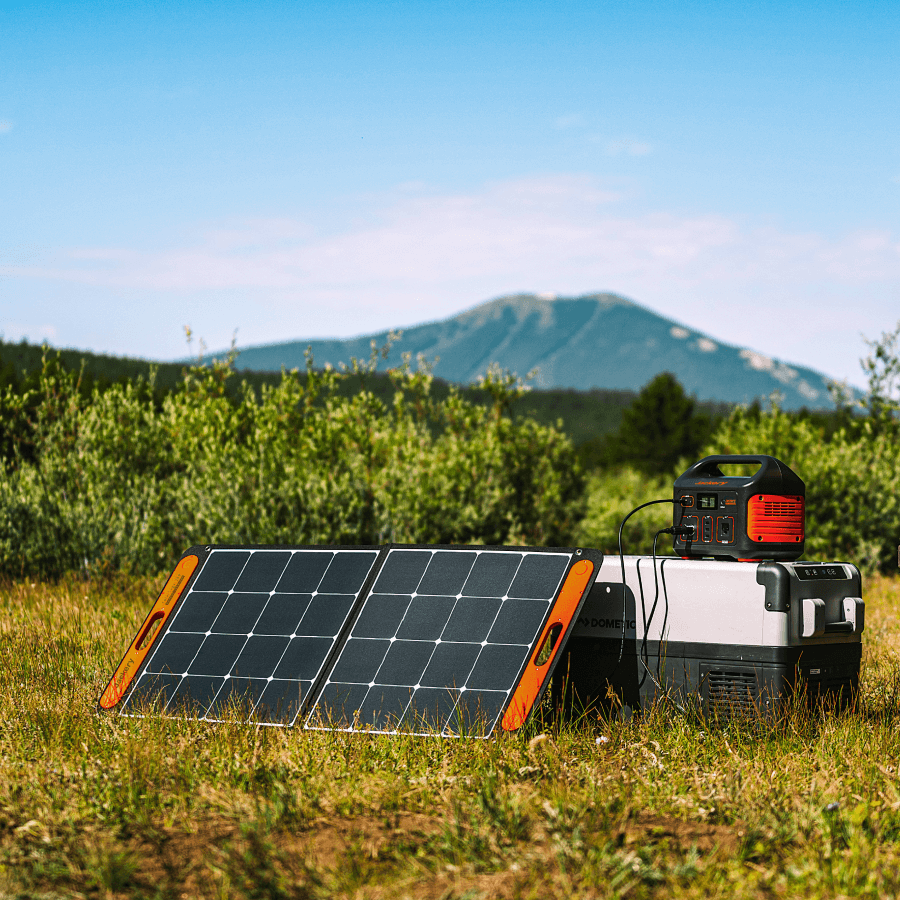
Leave a comment